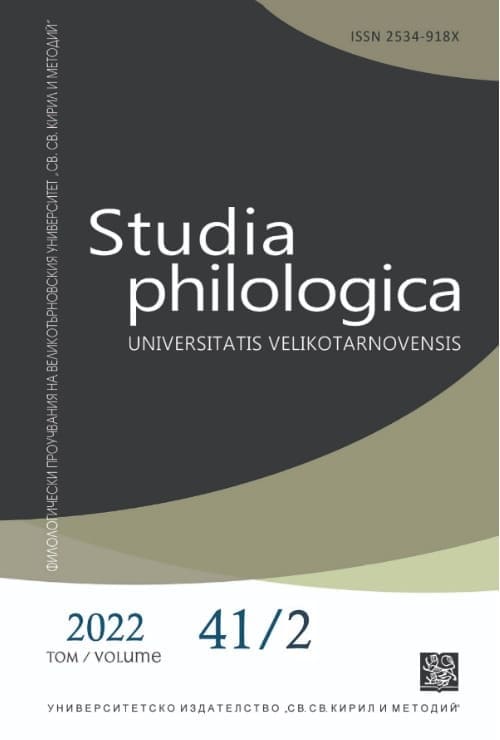Любовта на майката към нейните деца в българския език (по данни от психолингвистичен асоциативен експеримент)
The Love of a Mother for Her Children in the Bulgarian Language (According to Data from a Psycholinguistic Associative Experiment)
Author(s): Krasimira VasilevaSubject(s): Language studies, Language and Literature Studies, Applied Linguistics, Psycholinguistics, South Slavic Languages
Published by: Великотърновски университет „Св. св. Кирил и Методий”
Keywords: love; linguacultural concept; experiment; associative field
Summary/Abstract: The paper aims at presenting a part of the associative field of the linguocultural concept 𝑙𝑜𝑣𝑒 in the Bulgarian linguoculture. The object of the study is a specific variation of love – a mother’s love for her children. The analysed linguistic material is obtained from a psycholinguistic associative experiment with an equal number of male and female respondents. The main purpose is the associative field of the analysed feeling in the Bulgarian linguistic consciousness to be determined and also the influence of the linguistic person’s gender onto the field to be clarified. The results establish that the female linguistic consciousness is relatively more dynamic than the male consciousness in regard to the analysed concept. The Bulgarian linguistic person’s gender has not much influence on the character of the elements of the associative field of the linguocultural concept 𝑙𝑜𝑣𝑒. The linguistic person’s gender influences more their structure and their hierarchy in the field.
Journal: Studia Philologica Universitatis Velikotarnovensis
- Issue Year: 41/2022
- Issue No: 2
- Page Range: 185-193
- Page Count: 9
- Language: English, Bulgarian

